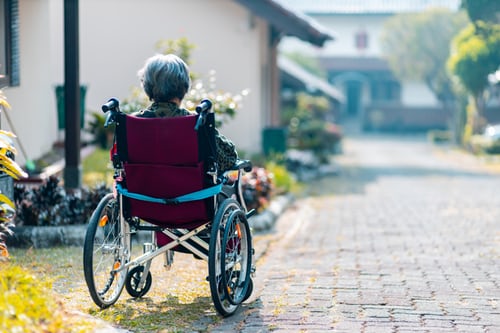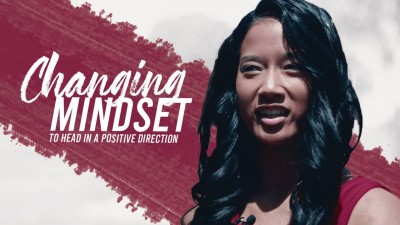‘There is nothing either good or bad but thinking makes it so…” Hamlet. Act 2, scene 2, 239–251
The power of positivity is about our mindset and how we perceive things. Over the years, experts have studied the effect of positivity in our daily lives. The overwhelming conclusion is that our mindset is crucial to our wellbeing and that the power of positive thinking helps us to be happy and live life to the best of our abilities, regardless of our circumstances. Positive thinking adds value to our quality of life.
Why is it important to be positive?
Scientists have proven that the power of positivity can help reduce pain, boost the immune system, reduce stress-related inflammation and improve emotions (Ehde, 2010 and Segerstrom, 2004). With an insightful, positive attitude in dealing with life events, an optimistic approach instead of a pessimistic one, can lead to greater feelings of well-being and perhaps even to a longer life (Eagleson, 2016; Seligman, 2000).
When situations can’t be changed, the thinking around that situation can be. Positivity can empower us to get through the hardships. Our level of happiness does not depend on circumstances but on how we deal with those circumstances (World Happiness Database). With the power of positivity, we can indeed make ourselves happier.
If you are in a wheelchair, and not quite there, in terms of happiness, do not despair. The theory on subjective happiness, called the ‘hedonic adaptation’, by Daniel Gilbert, says that after severe trauma, you will regain almost the same level of quality of life as before. Another study similarly proved that, contrary to general perception, people in a wheelchair are happier people in general, and do not associate themselves with failure and dependency. In general, they have a good quality of life and good interpersonal relationship (Dunn et al 2009).
Can you really achieve this level of happiness through the power of positivity?
Yes — it's all in the power of positivity
There are many individuals, who are in a wheelchair, who have shown exactly this. With the positive thoughts about life, nothing has stopped them from leading a fulfilling life.
British artist, Sue Austin has been in a wheelchair for 20 years. Sue has always challenged her boundaries with the power of positive thinking, ending up scuba diving, with an innovative underwater wheelchair and creating visual art.
A prime example of mind over matter is physicist Stephen Hawkins, whose power of positivity was second to none. He didn’t allow his physical challenges to stop him from his passion for learning and teaching. The American journalist in a wheelchair, John Charles Hockenberry, is also another brilliant mind who has lived a fulfilled life, that includes winning awards for his journalism, such as the Emmy and the Peabody.
Aron is a Swedish wheelchair mountaineer. Using the power of positivity, he has conquered mountain peaks and skied across the south pole. Aron is also a successful motivational speaker and proof of what you can achieve with the power of positive thinking.
“I’m constantly inspired by people who do things they’re not supposed to. People who you perceive as not having the ability, resources or talent but say ‘screw it, I’m going to do it anyway!” said Aron, illustrating his mindset.
You might say these are exceptions. Indeed, most societies still have limited accessibility for people in wheelchairs. And while society needs to catch up to the needs of disabled people, and provide them with greater options, for the most part, individual strength is sourced through the power of positivity. You can re-define expectations and focus on being positive. For example, if using a wheelchair instead of walking, going one mile instead of ten, meeting friends in the city instead of the countryside, you can still fulfil your dreams. Once you are ready, you can go further using the power of positivity and even scuba dive like Sue Austin or climb mountains like Aron.
This is by no means suggesting that the trauma and pain will disappear through positivity. During hardships, the mind can adapt to challenges. With the right support and the power of positivity, you can focus on what you can do and not dwell on the shortcomings and frustrations. When actor Daryl “Chill” Mitchell became paralysed in a motorcycle accident in 2001, he became one of the greatest advocates and cheerleaders for people with spinal cord injury through the “Daryl Mitchell Foundation”.
What steps can you take to stay positive?
Being disabled does not mean you just exist. You need to thrive and unleash your true spirit with positivity. But, how do you define positivity? With a purpose in life, your mental and physical health will improve (Park et al, 2016). Through participation and power of positivity, along with creativity, perseverance, tenacity, courage, and forgiveness (Peterson & Seligman), it gets better. With the power of positivity, you can flip your perception from feeling helpless to feeling self-reliant and self-confident. You can also change your mindset (become less bothered about the material life or physical attractiveness) and be positive.
Generate positive emotions
Emotions, negative and positive, are strong yet short-lived feelings. It is hard initially, but with the power of positivity, you could slowly become happier and more content with yourself. Martin’s story is truly inspirational. Injured in a bomb attack two years ago, Martin underwent brain training in Australia, assisting him to think positively. Now, Martin promises not to waste time worrying about his shortcomings. A prime example of the power of positive thinking!
Talk to others and participate
Looking at the positivity in her Instagram stories and reading her articles, you wouldn’t know about Ana’s hardships. Faced with three life-changing conditions in her 20s — ME, and conditions affecting her joints and heart, her only way to deal with this was to get a wheelchair and stay positive.
With the power of positivity, Ana turned her negative situation into something outstanding. By opening up about herself, Ana tells others they are not alone. She has found ways to enjoy life alongside challenging situations. Disability still carries significant stigma and Ana aspires to break the barriers. The only way to nurture positivity is to participate and not isolate yourself.
Raise awareness of the language used
While well-meaning friends, family and professionals, will use words like, ‘adjustment’, ‘adaption’, and ‘coping’ to describe the process of making your way in a wheelchair, you are certainly not a ‘victim’ of fate. These words can have negative connotations, they may imply that you are miserable, dependent or incapable of decision making (Fine & Asch, 1988). This is not helpful. The language used to describe disabled life must change and reflect the power of positivity.
Dani a young American, made sure that no one calls her victim. She became a quadriplegic at 23 and has since embraced her status. The first two years were brutal; she felt angry, helpless and almost lost her identity, often due to other peoples’ perception!
Using the power of positivity, Dani took control by starting exercise therapy and enrolling for a master's degree. Grad school gave her the time she needed to learn cooking, live alone, gain independence and adapt to the new kind of normal. Later, she started working and got a service dog. She has also tried dancing, yoga, skiing, surfing, and horse-riding, clearly displaying the power of positivity.
Dani fought misconceptions daily, by brushing it off, staying positive and avoiding anxiety. She’s proud of her identity in a wheelchair. Now, she networks with others, sharing her story and reminding them of the power of positive thinking.
Changing values
Your response to sudden disability affects your value system and view of the world. What was a righteous principal before, may now change and you feel the loss of those values (Keany and Glueckauf, 1993). Gradually, the ‘scope’ widens, and you identify your worth beyond attractiveness and superficial qualities. Can you tap into the power of positivity and deal with the changing values?
Industrial designer, Cherisse, has been in a wheelchair since her 20s. Using her positivity, she has not only contributed to the world’s cheapest prosthetic knee joint but also inspires others to lead a fulfilling life, finding their inner beauty and strength through the power of positive thinking.
Speaking of beauty, ten years ago, Zarah, 19, began her life in a wheelchair after an accident. Despite going through tremendous challenges, she gradually picked herself up using the power of positivity, becoming a fashion model. Embracing this positivity, Zarah models for big fashion houses and is a motivational speaker. Sam, is a fashion designer and model, in a wheelchair, helping differently-abled people to feel beautiful and glamorous.
You are not alone. As a person in a wheelchair, you go through many changes. With the power of positivity, you will bounce back and find a new purpose in life. By altering the mindset from, ‘why me?’ to, ‘I can do this’, you will begin to define what will become a huge resource of personal strength.
SOURCES:
Many names are changed and case studies re-worded in this article
- Center for Substance Abuse Treatment (US). Trauma-Informed Care in Behavioral Health Services. Rockville (MD): Substance Abuse and Mental Health Services Administration (US); 2014. (Treatment Improvement Protocol (TIP) Series, No. 57.) Chapter 3, Understanding the Impact of Trauma. Available from: https://www.ncbi.nlm.nih.gov/books/NBK207191/
- Eagleson, (2015). Behav Res Ther. Mar; 78: 13–18. DOI: 10.1016/j.brat.2015.12.017
- Segerstrom et al. (2004) Psychological Bulletin, Vol. 130, No. 4, 601–630
- Seligman, (2000). Mayo Clinic Proceedings, 75, 133-134
- Peterson and Seligman https://www.zora.uzh.ch/id/eprint/3647/1/Peterson_2007_AM_V.pdf
- Park, et al (2016). Am J Lifestyle Med. 10(3): 200–206. DOI: 10.1177/1559827614550277
- Fine, et al (2009). Temple University Press, 2009. ISBN 1439901600, 9781439901601
- Dunn, et. al (2009). The Oxford Handbook of Positive Psychology and Disability. Edited by Michael L. Wehmeyer
- World database of happiness https://worlddatabaseofhappiness.eur.nl/
- About Aron: https://aronanderson.se/en/
- Ehde, (2010). R. G. Frank, M. Rosenthal, & B. Caplan, Handbook of rehabilitation psychology (p. 417–424). APA https://doi.org/10.1037/15972-029
- About Martin: https://www.spinal.co.uk/martins-story/
- Glueckauf, et al (1992). Journal of Consulting and Clinical Psychology, 60,419-425
- Keany, (1993). Unpublished masters' thesis, Purdue School of Science, Indiana University - Purdue University at Indianapolis
Photo by Steven HWG on Unsplash.





















